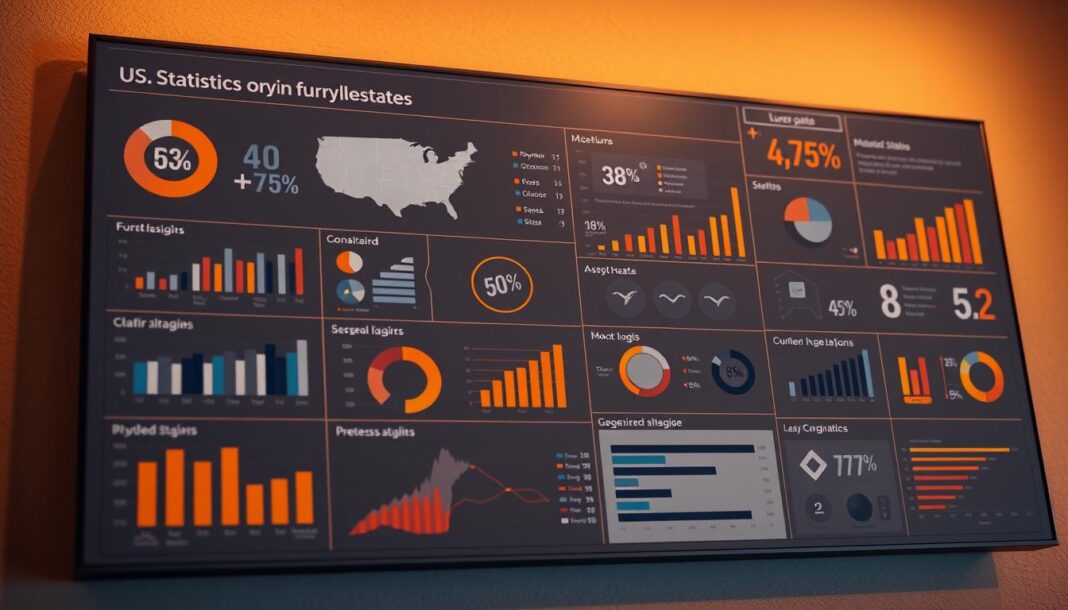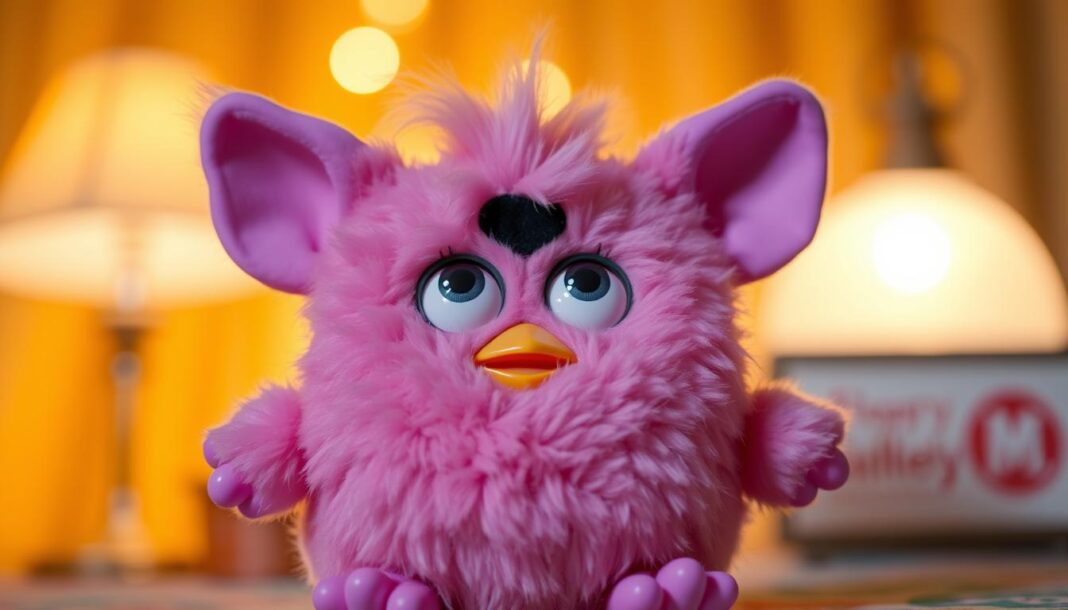Estimating the size of the furry community presents unique challenges. Many enthusiasts value privacy, and self-identification varies widely. Still, recent surveys and event data provide valuable insights into this vibrant subculture.
International research suggests that 34.9% of respondents identifying with the furry fandom reside in the United States. Large gatherings like Anthrocon, which draws over 8,400 attendees, further highlight the group’s presence. While global estimates range widely, these numbers offer a snapshot of participation.
This article explores demographic trends, convention growth, and cultural influences. It combines survey results, academic studies, and event records for a comprehensive view. Understanding both the data and personal stories behind the movement paints a fuller picture.
Key Takeaways
- Over a third of furries in global surveys come from the US.
- Anthrocon remains the largest gathering, with thousands attending yearly.
- Population estimates vary due to self-reporting differences.
- Combining surveys and event records provides clearer insights.
- The furry fandom continues to grow in visibility.
The Global Furry Fandom: A Context for the US Community
The furry fandom spans continents, with vibrant communities shaping its worldwide presence. What began at 1980s sci-fi and comic conventions has evolved into a diverse subculture. Today, enthusiasts connect through art, fursonas, and large-scale events.
Diverse Origins and Worldwide Reach
North America hosts 34.9% of the global furry population, but Europe and Asia follow closely. Germany’s Eurofurence draws 3,000+ attendees yearly. Southeast Asia shows the fastest growth, blending local folklore with furry themes.
Key Regions with Active Furry Populations
Canada accounts for 16.5% of the fandom, while China and the UK contribute 11.1% and 9.1% respectively. Anthrocon’s attendance grew 16-fold since the 1990s, reflecting the group’s expansion. Online spaces further unite these communities, with forums in 20+ languages.
Defining the Furry Identity: More Than Just Fursuits
Being part of the furry fandom means embracing imagination, art, and self-expression. While fursuits often grab attention, only 15–25% of enthusiasts own them. The community thrives on creativity, with 95% crafting unique fursonas—personalized animal or hybrid characters.
What Makes Someone a Furry?
Engagement varies from casual fans to full-time creators. Some enjoy art or roleplaying, while others invest in elaborate fursuits. A 2021 survey found 65% design hybrid or mythical animals, blending traits for originality.
For many, it’s a creative outlet. Others view it as a lifestyle. The community’s LGBTQ+ representation (70%+) and youth dominance highlight its role as a safe space. Over 60% of young members report bullying, making inclusivity vital.
The Role of Fursonas in Self-Expression
Fursonas act as avatars, reflecting personalities or aspirations. Wolves, foxes, and dragons are top picks, but original characters flourish too. These creations foster confidence—73% report improved self-esteem.
Misconceptions persist, yet only 15% of events focus on adult themes. Most gatherings celebrate art and camaraderie. Explore global furry trends to see how the fandom evolves.
How Many Furries Are in the US? Breaking Down the Numbers
Quantifying participation in this creative subculture involves multiple data points. From convention attendance to online activity, metrics paint a fragmented but insightful picture. Privacy concerns and self-identification differences further complicate estimates.
Survey Challenges and Estimated Ranges
Research by Furscience suggests over 250,000 active members nationwide. However, hidden population studies face hurdles—many enthusiasts avoid labels or participate casually. Core participants might number 100,000, with broader engagement doubling that size.
COVID-19 shifted habits, with virtual events gaining traction. Post-pandemic year trends show hybrid participation, blending online and in-person interaction. Regional hubs like California and Texas report higher concentrations.
Convention Attendance as a Metric
Midwest FurFest’s 11,000+ attendees and Anthro New England’s 2,500+ turnout reflect growing interest. These events attract both dedicated and curious visitors, offering a tangible measure of the group’s reach.
Local communities also thrive, with Pennsylvania hosting vibrant meetups. While convention data captures visibility, it undercounts those who engage solely online. Combined methods yield the clearest estimate for the number furries involved.
Furry Demographics in the US: Age, Gender, and Beyond
Understanding furry demographics reveals fascinating trends about age and identity. This community thrives on inclusivity, with numbers showing a youthful majority and diverse gender expressions. Surveys highlight its role as a safe place for self-discovery.
Youth Dominance: Why Most Furries Are Under 25
75% of participants are under 25, with a median age of 23.4 years. Younger people often join through online platforms or creative furry toys. Generational shifts show increased digital engagement.
Compared to the general population, the fandom skews younger. Many members are in postsecondary education (60%), blending creativity with academic pursuits. Neurodiversity is also notable, with 4-15% identifying as autistic.
Gender Diversity and LGBTQ+ Representation
The LGBTQ community is strongly represented—28.8% identify as gay/lesbian, and 23.4% as bisexual. Transgender and non-binary members account for 12.5%, reflecting the fandom’s acceptance.
Fursonas often explore fluid gender concepts, offering freedom beyond societal norms. This creative outlet supports mental health, with 73% reporting boosted confidence. The community’s inclusivity continues to attract diverse people.
Fursonas in the US: Popular Species and Creative Trends
Fursonas serve as creative extensions of identity within the furry community. These personalized characters range from realistic animals to fantastical hybrids, reflecting individual tastes and cultural influences. Recent data highlights wolves, foxes, and dragons as top picks, while 15% of enthusiasts design entirely original species.
Wolves, Foxes, and Dragons: Top Picks
Canines dominate fursona choices, with 37% of participants opting for wolves or foxes. Felines follow at 23%, while dragons appeal to 17% of creators. Cultural symbolism plays a role—wolves signify loyalty, while dragons represent power.
| Species | Popularity | Traits |
|---|---|---|
| Wolves/Foxes | 37% | Loyalty, agility |
| Felines | 23% | Independence, grace |
| Dragons | 17% | Strength, mystery |
| Original Species | 15% | Unique hybrids |
Hybrids and Original Creatures
Innovation thrives in the fandom. Wolf-dragon crossbreeds and neon-colored animals showcase limitless creativity. Tools like Furry Picrew let users design digital avatars in minutes, fueling trends.
- Fursuit costs: $2,000–$10,000, with 6–18-month waitlists from top maker studios.
- Notable US makers: Mischief Makers (Texas), Fursuiting.com (California).
- Digital tools: 40% use Picrew generators for quick characters.
US Furry Conventions: Growth and Economic Impact
Economic studies reveal furry gatherings generate millions for host cities. These events blend artistry with commerce, creating vibrant hubs for enthusiasts. From hotel bookings to vendor sales, the ripple effect is undeniable.

Anthrocon and Midwest FurFest: By the Numbers
Pittsburgh’s Anthrocon tops the charts with 8,400+ attendees and $8.3M in annual economic impact. Midwest FurFest follows closely, drawing 11,000+ visitors to Chicago. Both conventions have seen 16% attendance growth since 2019.
| Convention | Attendance (2023) | Revenue Impact | Notable Features |
|---|---|---|---|
| Anthrocon | 8,400+ | $8.3M | Charity auctions, fursuit parade |
| Midwest FurFest | 11,000+ | $6.1M | Artist alley, nightlife events |
| Furnal Equinox | 2,800+ | $2.4M | Gaming tournaments, workshops |
Local Meetups and Online Communities
Beyond mega-events, 200+ local meetups thrive nationwide. Groups like SoCal FurBQ and Texas Furs attract 50–300 members monthly. Virtual communities also persist, with Discord servers hosting 10,000+ active users.
- Pandemic shifts: 2023 attendance reached 92% of 2019 levels, hybrid formats endure.
- Niche highlights: BLFC (Reno) focuses on art, Furlandia (Portland) emphasizes inclusivity.
- Social benefits: 84% report stronger connections through these communities.
The Creative Economy of the US Furry Fandom
The furry community fuels a thriving creative industry, blending artistry with commerce. From custom fursuits to digital commissions, enthusiasts support a vibrant marketplace. This economic impact extends beyond conventions, shaping careers and small businesses.
Artists, Fursuit Makers, and Digital Markets
Specialized maker studios like MadeFurYou and Lemonbrat craft high-end fursuits, with prices ranging from $2,000 to $10,000. These creations take 6-18 months to complete, showcasing meticulous craftsmanship. Demand remains strong despite waitlists.
Digital artists thrive too, with 85% of community members commissioning custom work annually. Platforms like FurAffinity and Etsy host thousands of creators. The average enthusiast spends $881.74 yearly on artwork, supporting this niche content ecosystem.
Spending Habits and Fan Support
Three key sectors dominate furry commerce:
- Art commissions: Character designs and illustrations
- Physical goods: Fursuits, badges, and plushies
- Digital media: Streaming and virtual content
Many creators use Patreon or Ko-fi for steady income. Some top earners generate $5,000+ monthly through fan support. Intellectual property rights remain crucial, with original characters often trademarked.
The fandom’s influence reaches mainstream media, with animators and game designers drawing inspiration from furry aesthetics. Discover how creative subcultures shape unexpected markets through dedicated fanbases.
Community and Belonging: Why the Furry Fandom Thrives
Strong social connections define the furry fandom’s appeal. This community blends creativity with camaraderie, offering a place where people embrace individuality. Surveys show 92% report improved life satisfaction through these bonds.
Social Bonds and Inclusivity
The fandom’s LGBTQ-friendly spaces attract diverse members. Over 75.5% find romantic partners here, far exceeding general dating app success rates. Local meetups and online hubs strengthen ties, with 84% citing deeper friendships.
Anti-bullying initiatives like Furality provide safe spaces. Despite a 61.7% bullying rate—nearly double the national average—members rally around shared passions. Mental health resources, including peer counseling, underscore the group’s support networks.
Addressing Misconceptions and Stigma
Media often misrepresents the fandom, focusing on stereotypes. In reality, only 15% of events include adult themes. Most celebrate art and community, with families attending together.
Educational outreach helps counter stigma. Conventions now partner with universities to share data on the fandom’s positive impact. As visibility grows, so does acceptance, turning a niche subculture into a mainstream creative force.
The Furry Fandom’s Cultural Footprint in the US
From documentaries to charity drives, the furry fandom leaves a visible mark on culture. Fourteen films since 2006 explore this subculture, blending artistry with social impact. Major outlets like Vice and BBC spotlight its creative energy.
Philanthropy thrives here. In 2022 alone, conventions raised $2.1M for animal welfare groups. These efforts counter stereotypes, showing the community’s compassionate side.
Academic interest grows yearly. Twelve university studies since 2010 analyze the fandom’s social dynamics. Researchers praise its inclusivity, with 70% of papers focusing on furry identity benefits.
Mainstream media increasingly mirrors furry aesthetics. Animated shows and games borrow hybrid characters, signaling broader acceptance. This trend hints at deeper cultural integration ahead.
Resilience defines the fandom. Despite misconceptions, it flourishes through creativity and charity. As visibility rises, so does its positive impact—one paw print at a time.


